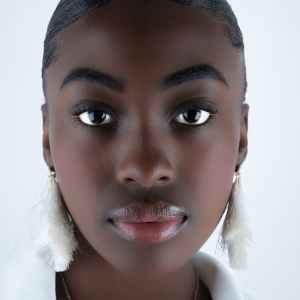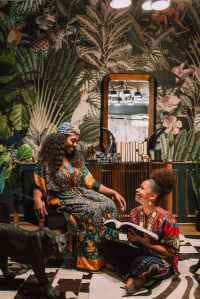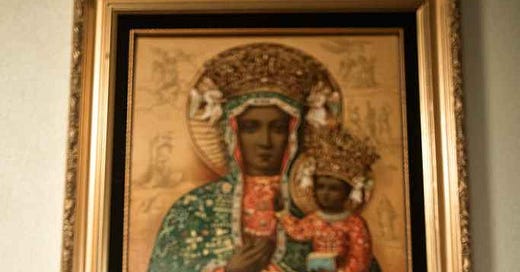We are reposting the series of articles written dealing with the Christmas season and Kwanzaa.
Gabrielle Union did an eloquent talk for "The Night of Opportunity." The theme of her talk was "Who are your people?" She begins by speaking about her place of birth and where she was raised, in Pleasanton, CA. The notion of one's "people" is about those who are accountable for you and to you. They are the ones who provide you with guidance and create safety for you.
But she continued talking about the sense of having "people" that has evolved over the years. She learned something that many do not know: that "privilege" is often nurtured throughout one's childhood. Her example is of people who went to camp together and grew up going to one another's homes. Those same "people" are the ones who ensure opportunities to study at prestigious schools (part of "legacy" within universities). Those people are the ones who provide internships, open doors to wealth acquisition and nurture pathways for success - however that might be defined.
What's interesting, is that Union speaks from the vantage point of an entertainer. Being featured on the cover of magazines, opened certain doors. Access to certain people opened doors for producing and directing, in addition to her acting.
During this Advent Season, many of our churches are narrating the story of Jesus' birth. Though his mother Mary may seem to be little more than the vehicle for the birth of Jesus, she is certainly more than this. Mary provides an entree into the life of a woman who might otherwise be overlooked in within the sacred text.
In John's Gospel, it says,
1 In the beginning was the Word, and the Word was with God, and the Word was God. 2 He was with God in the beginning. 3 Through him all things were made; without him nothing was made that has been made. 14 The Word became flesh and made his dwelling among us. (John 1:1-3, 14).
If Jesus is the word made flesh, then within her belly, Mary has the "Word." This Word is the gift of God's unfailing love, of God's withness. It is the enfleshed promise of God. Since Mary is pregnant with the Word of God, she becomes a symbol for many of us. We too, are pregnant with the Word of God as academics, as clergy and as activists. We too have been endowed with something which is precious. Yet, we dwell in a world which is hostile to that very gift.

What does Mary do? She goes to her "people." Mary visits her cousin, Elizabeth. When you are carrying something which is new and exciting, when you realize what you have is sacred, it can be lonely. No one understands that what you have is not just a violation of the rules! What you carry is God's express revelation.
Our Creator's continual kenosis is the pouring out of love in the gifts that we embody. But Mary had people who would understand. Elizabeth knew what it was like to carry a precious gift which defied tradition. She understood the ridiculousness of a woman being endowed with the Word of God. Elizabeth understood what it meant for God to turn lament into laughter, and persecution into praise.
So, Mary goes to her people.
It is here that she dwells within the sacredness of fellowship and support. It is here that she doesn't have to apologize for the greatness she carries - it's actually celebrated. That is part of justice-making. Justice is the connection that every person deserves, which celebrates and affirms their own gifts - rather than kneel upon them until they are extinguished.
Are you a Mary, today? Are you seeking someone who will nurture your gifts and not negate them? Are you longing to expand instead of making yourself small?
As Black women, we often witness a unique form of hatred set aside for us, which we now call "misogynoir." We see it in the inferences that we are not marriage material in commercials which often feature women who rarely look like us as part of the image purchasing a car or a house. We see women who do not look like us in academic settings - often self declared experts of Black women's stories and knowledge production in settings which hire everyone except us. We see women from multiple and wonderful communities rise in rank among clergy - but rarely do we see the women with broad noses, natural, kinky hair or skin that reflects the richness of the earth.
Being bound by these social images often makes us feel that we are still those bondswomen who are perceived as good enough to produce labor units, but who are not worthy to celebrate their own accomplishments and labor.
How can we change this?

I think the first step, is to seek out our people. If you are in a master's or doctoral program, you need to seek out your people. Your people may be advisors and peers who walk the journey with you. Your people may be family members who celebrate you and teach you how to read people - not just books. But dwell in the presence of your people. In our coming together, we create justice through our mentorship, through affirming the humanity of those in pain, and by lending support in tangible ways.
My hope is that, before long, you will also see the Misogynoir to Mishpat (M2M) Research Network as part of your people.




